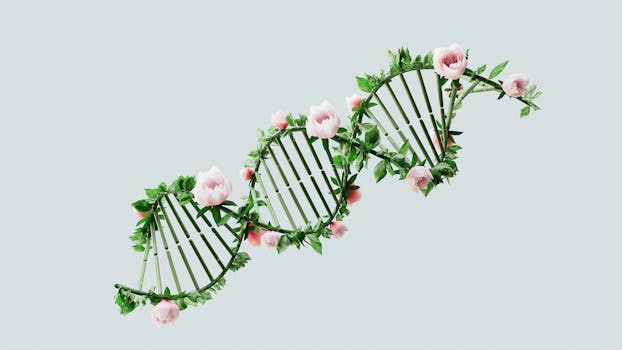
The Role of Genetics in Human Health and Disease
Genetics in Human Health and Disease play a crucial role in determining our overall well-being. The study of genetics has come a long way in understanding the complexities of human health and disease. Genetics is the study of heredity, genes, and variation. It involves the study of the structure and function of genes, and how they contribute to the development and function of living organisms.
Introduction to Genetics

Genetics is a vital aspect of human health and disease. The human body is composed of approximately 30 trillion cells, each containing 23 pairs of chromosomes. Chromosomes are thread-like structures that carry hereditary information in the form of genes. Genes are the basic units of heredity and are responsible for carrying information from one generation to the next.
How Genetics Affect Human Health

Genetics play a significant role in determining our susceptibility to certain diseases. Some diseases are caused by genetic mutations, while others are influenced by a combination of genetic and environmental factors. For example, sickle cell anemia is a genetic disorder that affects the production of hemoglobin, a protein in red blood cells that carries oxygen to different parts of the body.
Genetic Disorders and Diseases

There are many genetic disorders and diseases that affect humans. Some of the most common genetic disorders include cystic fibrosis, Down syndrome, and Huntington’s disease. These disorders are caused by genetic mutations or alterations in the DNA sequence. Understanding the genetic basis of these disorders is essential for developing effective treatments and prevention strategies.
Modern Genetics and Genomics

Recent advances in genetics and genomics have revolutionized our understanding of human health and disease. The development of new technologies, such as next-generation sequencing, has enabled us to sequence entire genomes quickly and affordably. This has led to a greater understanding of the genetic basis of many diseases and has paved the way for the development of personalized medicine.
Conclusion

In conclusion, genetics in human health and disease play a vital role in determining our overall well-being. Understanding the genetic basis of disease is essential for developing effective treatments and prevention strategies. As our understanding of genetics and genomics continues to grow, we can expect to see significant advances in the diagnosis, treatment, and prevention of many diseases.



